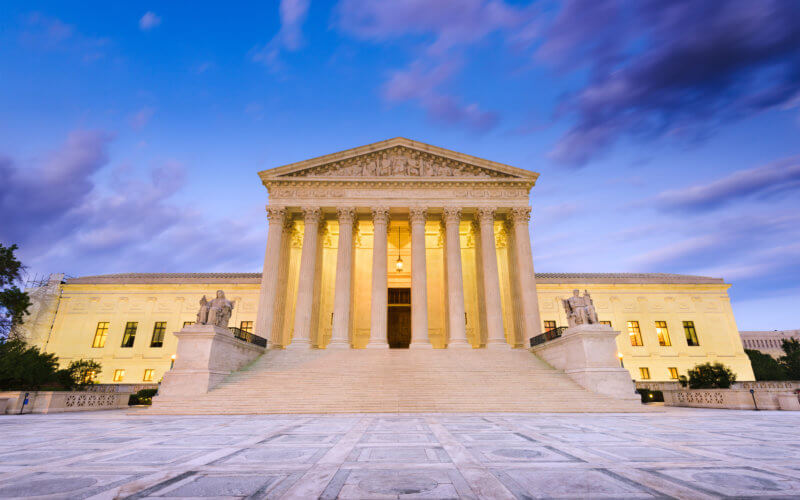
One case expected to generate attention when it goes before the Supreme Court this summer will be New York State Rifle & Pistol Association Inc. v. Bruen. With this case, the court will decide whether the state of New York’s denial of the petitioners’ applications for concealed-carry licenses for self-defense violates the Second Amendment. More broadly, the court will consider whether to throw out a New York state law that restricts people’s ability to carry guns in public.
Currently, New York requires people to demonstrate that they have a specific need to carry a handgun in public. However, based on questions asked by some of the conservative justices seem to imply that they may be considering overturning the law.
“I think the Second Amendment is one of the most poorly written pieces in the Constitution,” said Rob Robinson, associate professor of political science. “Take a look at it. ‘A well regulated Militia, being necessary to the security of a free State, the right of the people to keep and bear Arms, shall not be infringed.’
“This has two interpretations: The first interpretation is that the states were afraid of a tyrannical federal government, which might try to disarm their state militias. The Second Amendment can therefore be seen as a federalism guarantee that states, not the feds, control and fund militias.
“The second interpretation has similar concerns but the thought is that individuals, rather than states, would be the mechanism for protecting against tyranny, just as individuals use their free speech or right to petition to impact politics.”
Robinson points out that for most of the country’s history, no one knew which interpretation was the right and, for that matter, no one much cared. That changed in 2008 when the court heard the case of District of Columbia v. Heller.

“The takeaways from this first and only ‘modern’ gun case was that the individual rights model wins out. The Second Amendment was now based also on self-defense and that flat bans on handguns were unconstitutional. So individual rights win (a 5-4 decision) based on self-defense.
“However, Justice Antonin Scalia said that not all gun regulations are unconstitutional,” he continued. “He said, ‘Nothing in our opinion should be taken to cast doubt on longstanding prohibitions on the possession of firearms by felons and the mentally ill, or laws forbidding the carrying of firearms in sensitive places such as schools and government buildings.’”
That then raised the question: How should lower courts evaluate laws that regulate guns but don’t ban them?
New York passed a concealed carry law but individuals must show “proper cause” to get a license.
“So the court will determine whether this is a constitutional state limitation of gun rights,” Robinson said. “Heller isn’t much help here as precedent as it only applies to home possession.
“One of the questions is how broad is the scope of the Second Amendment? Does it give you the right to carry guns outside of the home? If so, what is its scope? What standard will protect it? Did New York’s petition violate the Second Amendment?
“In this case, the petitioner for gun rights (Bruen) argues that the Second Amendment gives citizens the right to public carry, that the petition process is too stringent for self-defense needs and the process is discriminatory.
“The respondent (New York) argues that we have a long history of states regulating public carry, that guns in public are bad for free speech and safety, that self-defense arguments are weaker in public settings, and that federalism is good (let the states decide).
“I’m predicting that New York will lose,” Robinson said. “The question is, will they lose narrowly or ‘bigly?’ How far will the court go with this case?
“The court could say that New York’s ‘proper cause’ determination is too vague or arbitrary to stand, but makes no larger rule about gun rights. Or it could use the case to launch some sort of standard or test that states must meet to regulate firearms in a number of contexts.”
As to whether or not the recent mass shootings, especially the one at the elementary school in Uvalde, Texas, might affect the court’s decision, Robinson isn’t sure. “My guess is that the court majority would think something like ‘It’s our job to interpret the Constitution, not worry about politics.’ If all the mass shootings to date didn’t affect their thinking, I don’t think one more will tip the balance.”
He did note, however, that given the firestorm a strong pro-gun rights opinion might cause, the court may have decided to hold off on announcing this case now.
“Then again, these types of cases normally get released at the very end of the term, regardless.”